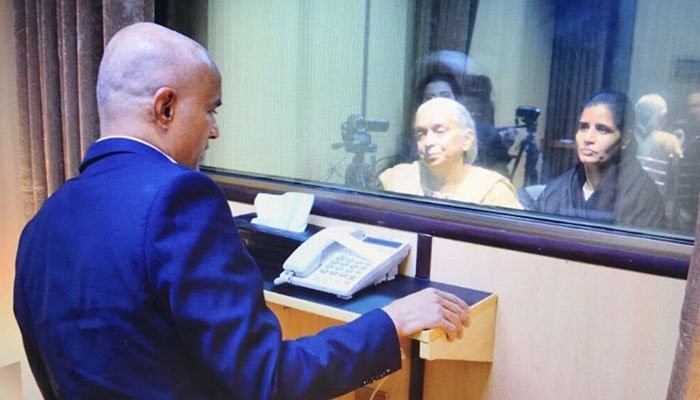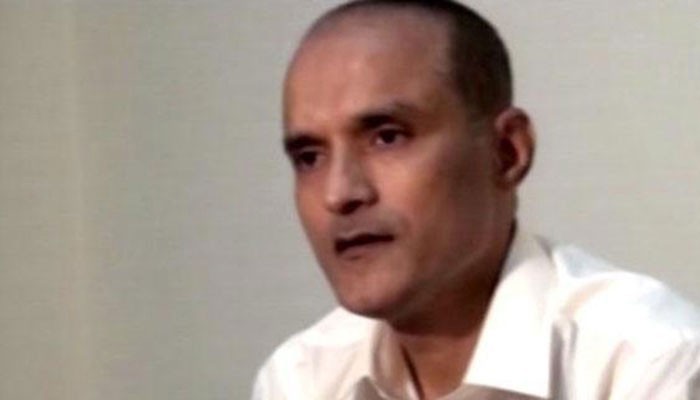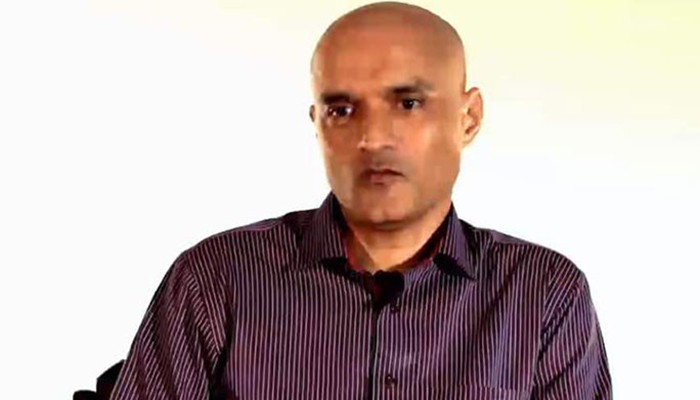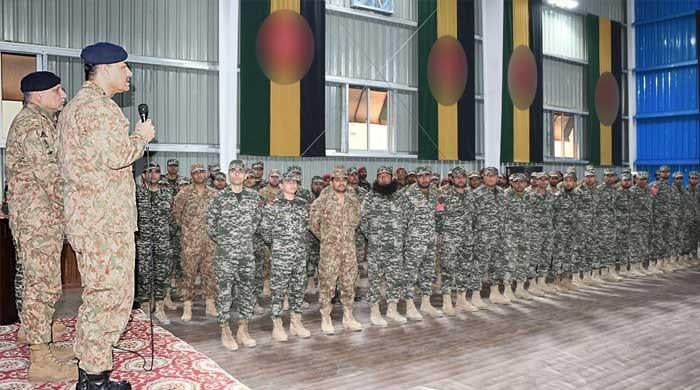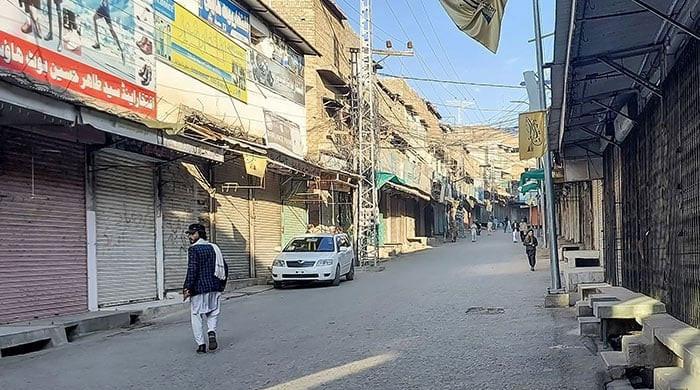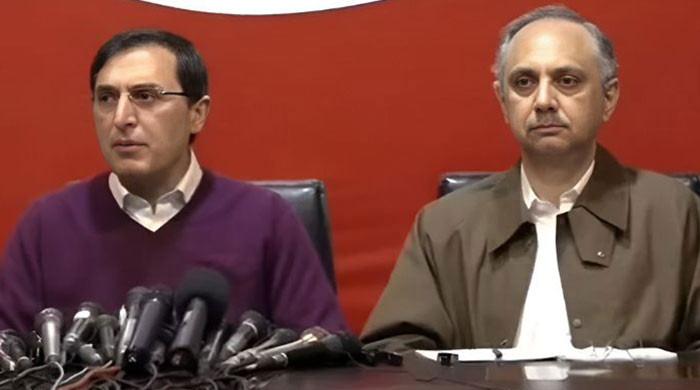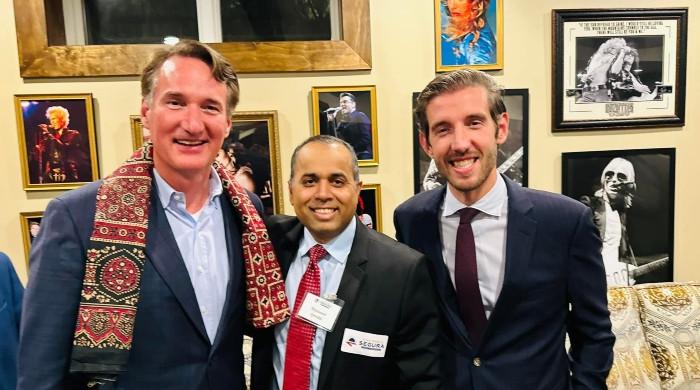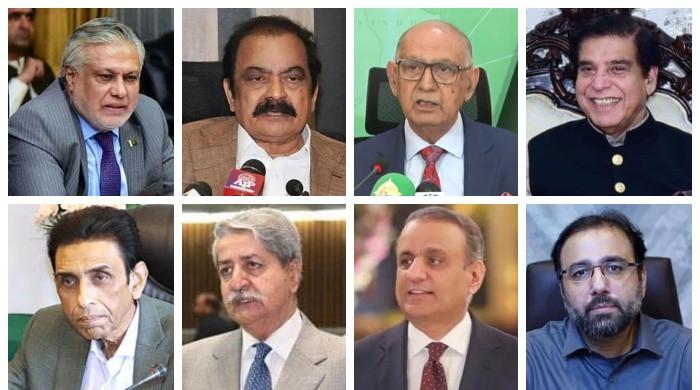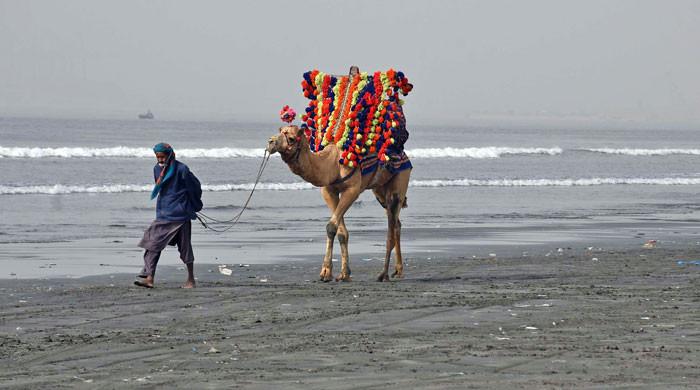Indian FM alleges spy Jadhav’s family was harassed
Sushma Swaraj says if there was a camera in Jadhav's wife's shoes, it should have been displayed to the media
December 28, 2017
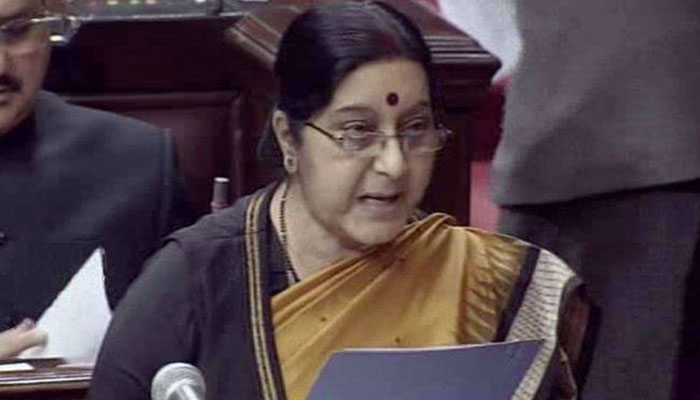
NEW DELHI: India’s External Affairs Minister Sushma Swaraj alleged on Thursday that spy Kulbhushan Jadhav’s family was harassed while they were visiting him in Pakistan.
Swaraj, speaking in the Indian parliament after submitting a report on the meeting, claimed that the visit was used by Pakistan for propaganda purposes.
On December 25, Jadhav’s mother and wife met him at the Pakistani Foreign Office in Islamabad. The meeting was allowed by Pakistan on humanitarian grounds.
According to Swaraj, Jadhav’s family was harassed and the spy’s wife and mother were shown as widows by removing their mangalsutras, bindiyas and bangles.
Moreover, Swaraj said if there was a camera in Jadhav's wife’s shoes, it should have been shown to the media.
Jadhav confessed to his role as an Indian spy and terrorist during the recent meeting with his mother and wife at Pakistan Foreign Office, according to reports in the Indian media.
During the meeting with his mother Avanti and wife Chetna on December 25 in Islamabad, Jadhav admitted he was an Indian spy and had engineered a spate of terror attacks on Pakistani soil, the Times of India reported.
"But why are you saying all this? You were doing business in Iran from where you were abducted. You must tell the truth," his mother grilled him after Jadhav greeted the two women by confessing that he was, as his charge sheet read, indeed an Indian spy and a terrorist.
The meeting lasted almost 40 minutes, the Pakistan Foreign Office said. Indian diplomats, including Deputy High Commissioner JP Singh, accompanied Jadhav's family and were present during the meeting, which was conducted in a specially prepared room via an intercom through a glass partition.
ICJ proceedings
On April 10, 2017, Pakistan sentenced the RAW agent to death for carrying out espionage and sabotage activities in Balochistan and Karachi.
In a reaction to the move, Pakistan’s relations with neighbouring India tensed, and New Delhi approached the ICJ to hear the case.
On May 18, the ICJ ordered Pakistan to halt the execution of Jadhav until a final decision was made in the proceedings.
India then moved the ICJ to give it six months to file pleadings in the case, which the United Nations’ judicial organ had turned down in June this year. Later, New Delhi submitted its memorial (arguments) to the ICJ on September 13.
On December 13, Pakistan submitted its reply to the ICJ, dismissing India's stance in the case of the convicted spy.
In its counter-memorial, Pakistan stated that Jadhav is not an ordinary person as he had entered the country with the intent of spying and carrying out sabotage activities.
The reply also stated that Jadhav, who was a serving officer of the Indian Navy, does not fall under the purview of the Vienna Convention.
The case remains sub judice.
Arrest, confession, sentencing
Jadhav alias Hussein Mubarak Patel, was arrested on March 3, 2016 in a ‘counter-intelligence operation’ from Mashkel area of Balochistan for his involvement in espionage and sabotage activities in Pakistan.
The incarcerated RAW agent, in his video statement, confessed to involvement in sabotage and espionage inside Pakistan, which has also been the crux of Islamabad’s case in the ICJ.
On April 10, a Field General Court Martial — under the Pakistan Army Act, 1952, and Official Secrets Act, 1923 — awarded death sentence to Jadhav for espionage and sabotage.
Army Chief General Qamar Javed Bajwa ratified the sentencing by the army tribunal.
Jadhav has since been on the death row.
